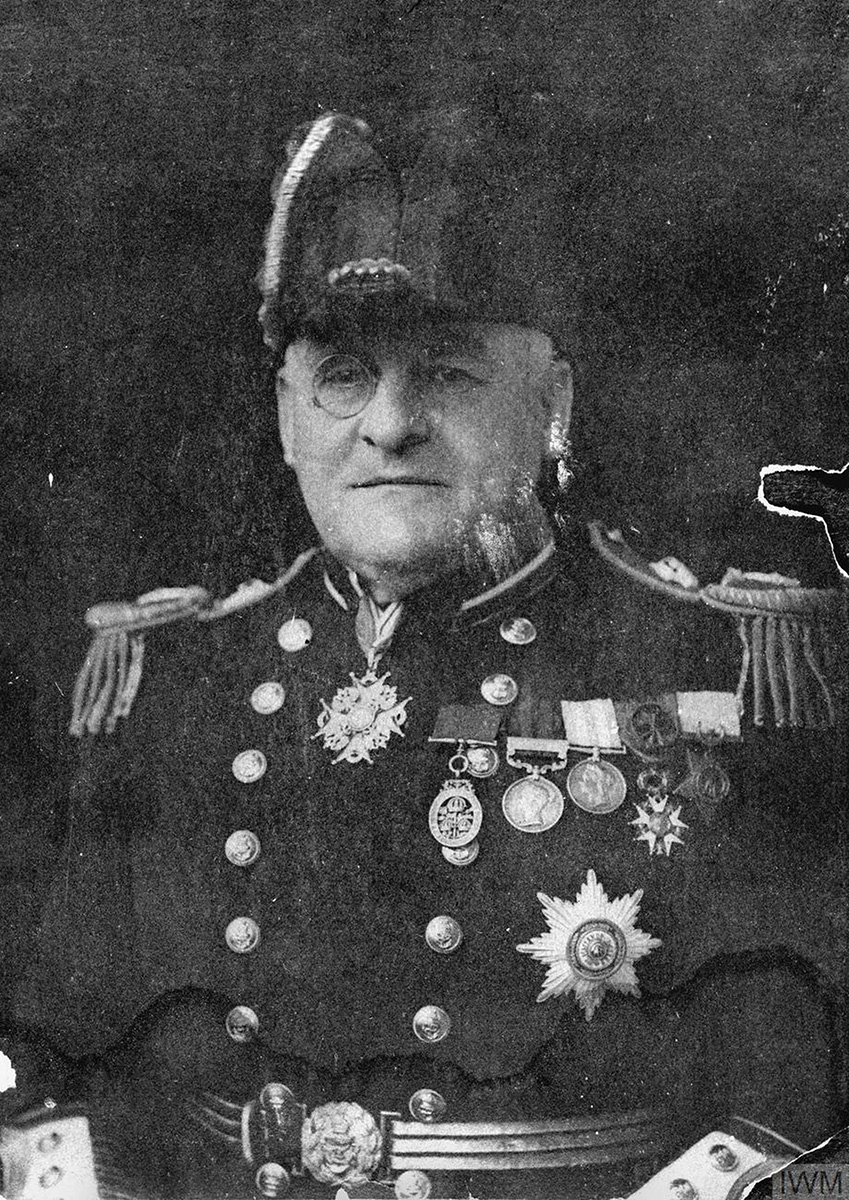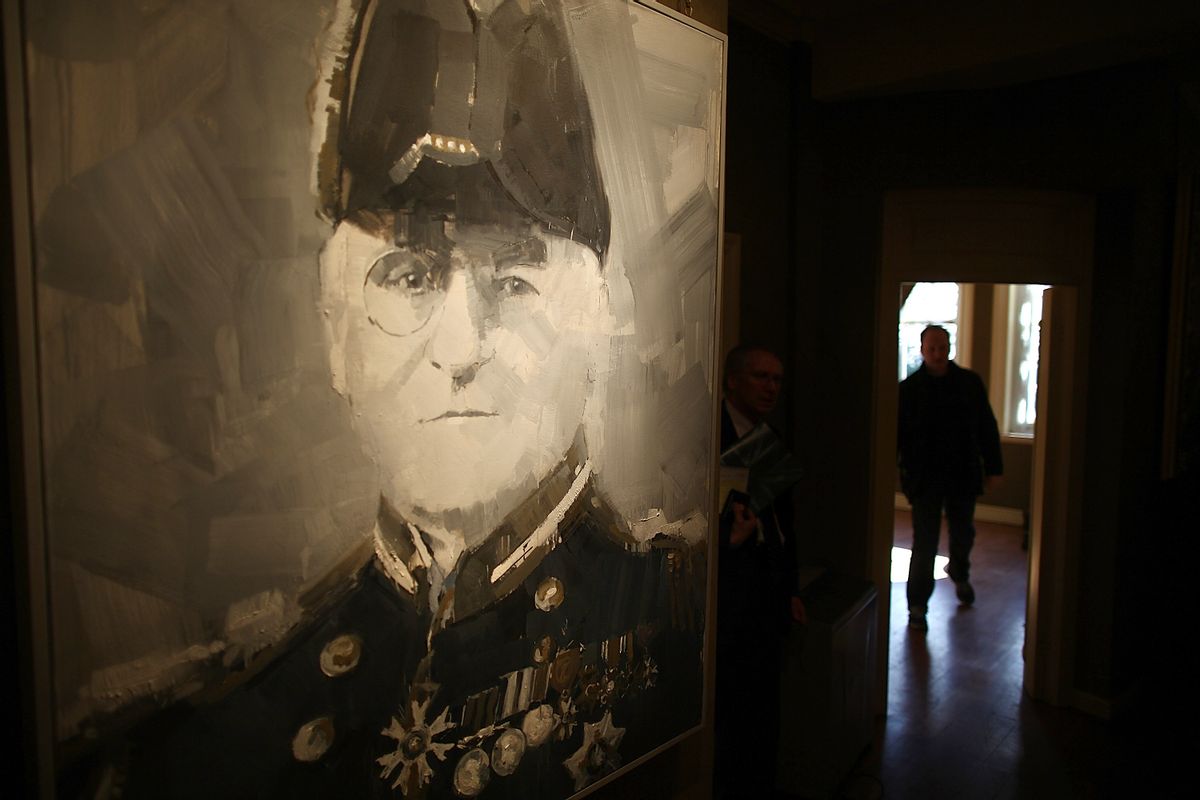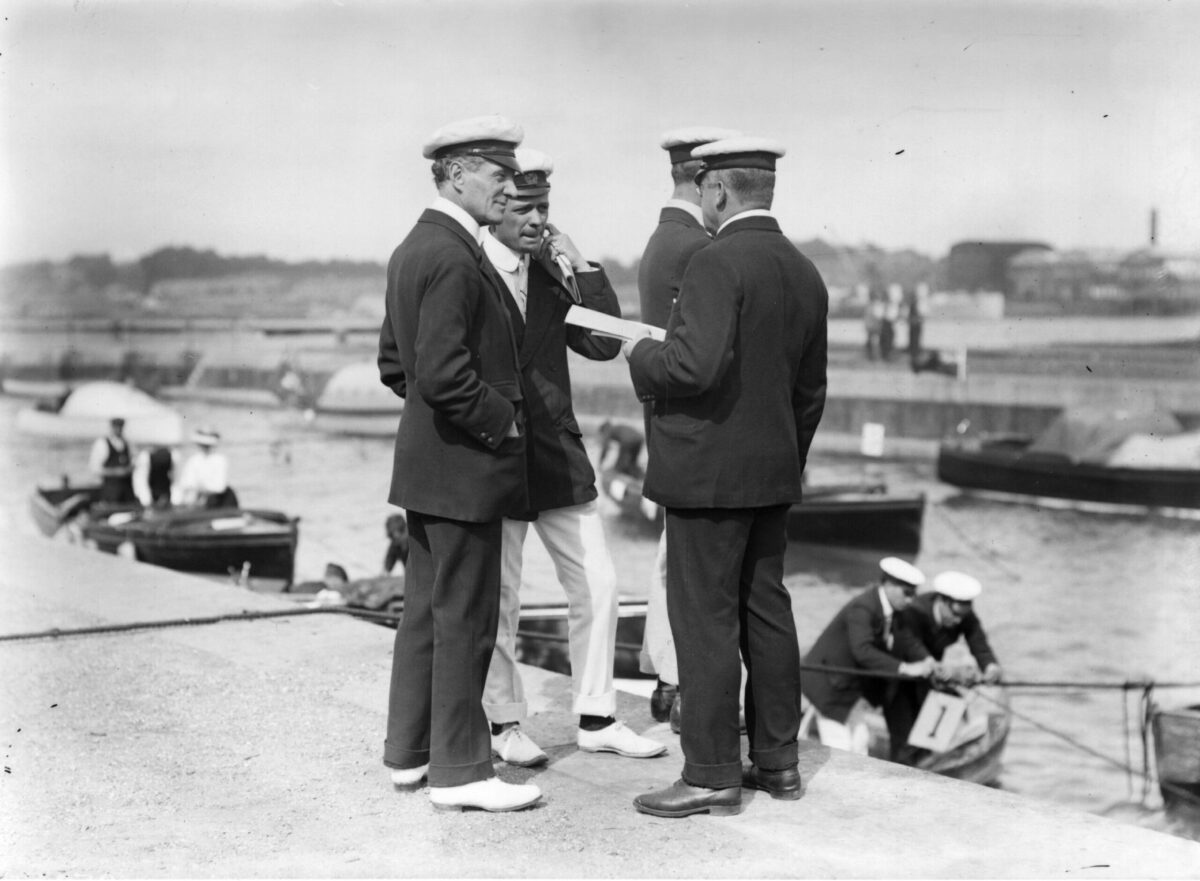On Jan. 11, 2022, a post was created in r/todayilearned on Reddit that said a man named Capt. Sir Mansfield Cumming suggested that British intelligence agents use semen as invisible ink during World War I. Above the many jokes that filled the Reddit comments, the title of the thread said: "TIL the British Secret Service used semen as invisible ink during WW1, but stopped the practice later on because of the smell."
Key Findings
The Reddit post linked to the World War I section of Cumming's Wikipedia page. This portion of the Wikipedia page cited two sources. The first was a 1999 review from The Independent for the Alan Judd book, "The Quest for C: Mansfield Cumming and the Founding of the British Secret Service." The second source was Kristie Macrakis' 2015 book, "Prisoners, Lovers, and Spies: The Story of Invisible Ink from Herodotus to al-Qaeda."
In addition to these two published pieces, we consulted a number of other books, newspaper articles, and material from dated publications. After reviewing all of them, we found that the primary original sources for this claim appeared to be the diaries of both Cumming and Major Walter Kirke.
To summarize our findings, yes, we found credible information that Cumming did suggest during World War I that his agents use semen as a secret and invisible ink. We also found that there was a stench issue that resulted from the practice. However, neither of the two sources mentioned by Wikipedia said that usage of the special ink was stopped because of the smell. Even so, we found no evidence that this tactic continued after the end of the war.
(Note: When researching rumors about decades-old happenings, it can be important to find some data on the subject that was published before the advent of the internet. For example, we once looked into a quote that was attributed to Anne Frank. We found that there were several books that had published her name next to the quote. However, none of those books were written before the year 2000. This was a red flag, since Frank died in 1945. We later confirmed with Anne Frank Fonds, an institution that was created by her father, Otto, that the quote was fake.)
Mansfield Cumming
Who was Cumming? This is a complex question. To build a brief summary, we turned our attention to a man named Christopher Andrew. According to the Yale MacMillan Center, Andrew is an emeritus professor of modern and contemporary history at the University of Cambridge and a former official historian of British security service MI5. He also wrote a number of books on the subject.
In 1986, Andrew authored, "Her Majesty's Secret Service: The Making of the British Intelligence Community." In the book, he said that Cumming was born in 1859 and later became "the first head of what became the foreign section of the Secret Service Bureau (the future SIS or MI6), probably founded in October 1909." The service went through several names, beginning with MI1, then MI 1c in 1916, and finally SIS (Secret Intelligence Service) in 1921.
Cumming was described as "a short, thick-set naval officer" whose full name was "Commander (later Captain Sir) Mansfield George Smith-Cumming (usually abbreviated to 'Cumming')." He reportedly "loved dressing up and noted in his journal details of both his own and his agents' disguises," including one of his first two master spies: Sidney Reilly. (Reilly has been referred to as "the inspiration for James Bond.")
In September 1914, his son, Alastair, was driving him in a Rolls-Royce on a road to Paris. During the drive, the car hit a tree, taking Alastair's life. According to Andrew's writing, the accident "quickly passed into the mythology of the Secret Service." Word got around that Cumming purportedly used a penknife to cut off his foot so that he could be freed to crawl to his son's body on the side of the road. This resulted in him receiving a wooden attachment for his leg, which he would place on a child's scooter to make his way around the office while holding his swordstick, "habitually glaring at newcomers through a gold-rimmed monocle."
Cumming died in 1923, five years after the war ended. According to Andrew, he is still honored to this day by the fact that "the present head of the SIS is still known as 'C' (not "M," as in Ian Fleming's novels) and signs his name in the special green ink used by Cumming."
Kirke, who "saw Cumming almost daily" during the two years before the first world war, "considered him 'the cheeriest fellow I've met, full of the most amusing yarns.'" A wealth of information about Cumming's life and career is available in the rest of Andrew's book, as well as the other sources at the end of this article.
Invisible Ink
The oldest mention in a publication of Cumming's idea to use semen as invisible ink came from another work by Andrew that was published in 1983. It was in this year that he penned an article in History Today. In it, he argued that the Lord Chancellor should open up two specific confidential and historical archives related to British intelligence. Within the story, it had a brief mention about having agents write reports in semen:
I do not propose that he open at a stroke the whole intelligence archive up to the Second World War. I simply suggest that he make a start with two unusually diverting documents which I hope might whet his appetite for more. Neither could be of any conceivable use to a potential enemy. Both would be of enormous interest to historians.
The first is the diary (written in two naval logbooks) of Captain Sir Mansfield Cumming, the first head of M.I.6 who died in 1923. Partly because of its entertainment value, Cumming's diary has sometimes been shown to M.I.6's new recruits when they are taken to meet 'The Chief. It is said to give details of his disguises (some obtained from a theatrical supplier), his Rolls Royce motor cars (which he drove at hair-raising speed through Admiralty Arch), and his recipes for secret ink (including one suggestion that his agents write their reports in semen). There is much in Cumming's logbooks to instruct as well as amuse. They should make it possible, for the first time, to assess the full range of M.I.6's early activities and its relations with government.
The second set of documents mentioned by Andrew was "the history of GC and CS (the predecessor of today's codebreaking and communications intelligence agency, GCHQ), written by Frank Birch."

On page 149 of Andrew's book, "Her Majesty's Secret Service," he wrote that, in Kirke's diary, it said that Cumming's (referred to as "C") idea for British intelligence agents to use semen as invisible ink occurred in 1915, which was, in fact, during World War I, as claimed by the Reddit post:
Kirke believed that Cumming's Swiss network was also doing "no good at all." C's agents, in his view, took unnecessary risks - "or say they do" - by frequently crossing the Swiss border into and out of Germany. In June, Cumming sought the help of scientists at London University in discovering secret inks to enable his agents to communicate at less risk to themselves. His researches had a remarkable outcome. C reported to Kirke in October that "the best invisible ink is semen," on the grounds that it failed to react to iodine vapour, charring, "or any test so far devised." Kirke asked Cumming what semen did react to. He seems to have received no answer.
Also on pages 148 and 149, Andrew wrote about an agent named "Dr. Condom," which may have been a codename. "Dr. Condom" and Baron Brault (codenamed "Baudin") served "to provide a channel of communication and payment" for Major Ernest Wallinger's intelligence network. Condom's appearance on the same page as Cumming's semen idea appeared to be a coincidence.
'Stinky Ink'
In 2015, the Yale University Press and author Kristie Macrakis published the book, "Prisoners, Lovers, and Spies: The Story of Invisible Ink from Herodotus to al-Qaeda." This was one of the two sources cited for the Wikipedia article that was referenced in the Reddit post. As of 2022, Macrakis was a professor in the School of History and Sociology at Georgia Tech.
On pages 151 and 152, Macrakis titled the last section of chapter seven as, "Stinky Ink." She wrote that the idea for using semen as invisible ink became a bit of an issue:
MI6 investigators thought they had solved a great problem, and the men started gleefully experimenting with the new discovery. Obviously, the main way to produce semen at the office was through masturbation. The agent who had discovered the covert use of semen reportedly had to transfer to another department after he was teased so much by other staff members. One officer in Copenhagen took the new discovery so seriously that he "stocked it in a bottle - for his letters stank to high heaven and we had to tell him a fresh operation was necessary for each letter."
Her sources were shown in the bibliography. We have reprinted them here for any readers wishing to do further research:
Kirke Papers 82/28/I, Diary, War Museum, London, June 22, October 11, 1915; Harold Hartley and D. Gabor, 'Thomas Ralph Merton, 1888-1969,' 'Biographical Memoirs of the Fellows of the Royal Society 16' (November 1970), 421-40, quotation on 425. See also Christopher M. Andrew, 'Her Majesty's Secret Service' (New York: Viking, 1986), 149; Keith Jeffery, 'Secret History of MI6' (New York: Penguin, 2010).
The last of those sources, Jeffrey's "Secret History of MI6," published that the first known mention of Cumming's secret ink request was found in a June 1915 entry in Kirke's diary. Deputy chief censor F. V. Worthington delivered the news to Cumming later in October that semen could be used as invisible ink. That same month, Cumming told Kirke what Worthington told him, as confirmed by Andrew's book. In other words, once again one of the original sources was Kirke's diary.
Macrakis also wrote that, at the time, secret messages were written with other "organic sympathetic inks," including vinegar, onion juice, saliva, urine, milk, and other readily available household substances.
'Every Man His Own Stylo'
The second source cited in the Wikipedia article that was linked to by the Reddit post was a book review from The Independent. In 1999, British historian and author Piers Brendon looked at Judd's new work, "The Quest for C: Mansfield Cumming and the Founding of the British Secret Service."
Within the review, Brendon wrote: "Cumming was so pleased to discover that semen made a good invisible ink that his agents adopted the motto: 'Every man his own stylo.'" According to a Google Books search, the same phrase also appeared in Richard J. Popplewell's 1995 book, "Intelligence and Imperial Defence: British Intelligence and the Defence of the Indian Empire 1904-1924," as well as Michael Smith's 1996 work, "New Cloak, Old Dagger: How Britain's Spies Came in from the Cold."
Brendon noted that in Judd's book, he "set out to detach fact from fantasy" and "had access to classified documents, notably Cumming's Secret Service diary." In the research of his diary, Brendon said that the book did "little more than confirm Christopher Andrew's definitive 1985 account of the Secret Service." This referred to the 1986 book, "Her Majesty's Secret Service," thus somewhat connecting the dots between the diaries of Kirke and Cumming, and providing the cherry on top of a stack of credible evidence that showed the claim from Reddit to be true.


